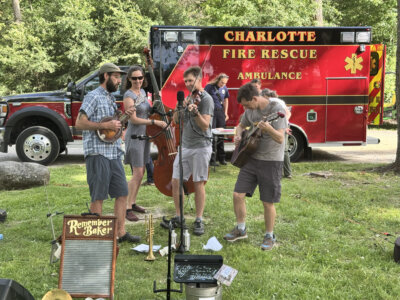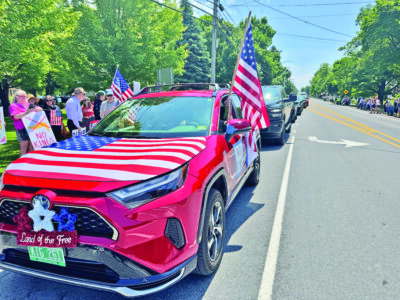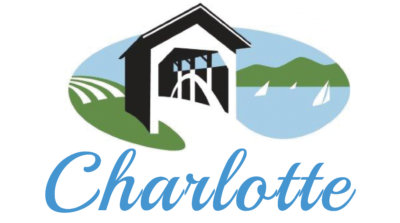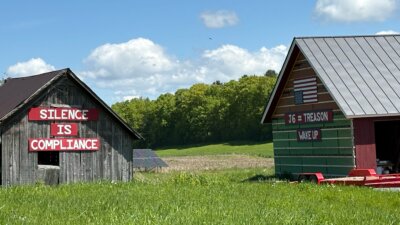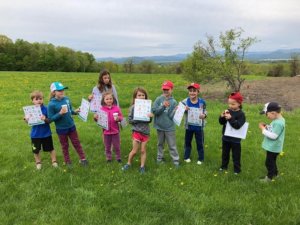Charlotte voters take up sticky topics at the polls
(A story about voter sentiment on Town Meeting Day erroneously quoted resident Evan Langfeldt. It has been fixed.)
In the early hours and brisk temperatures Tuesday in Charlotte, residents cycled through town hall to weigh in on Town Meeting Day ballot items, including a hefty tax increase for school budgets and a contentious proposal to replace the town administrator with a town manager.
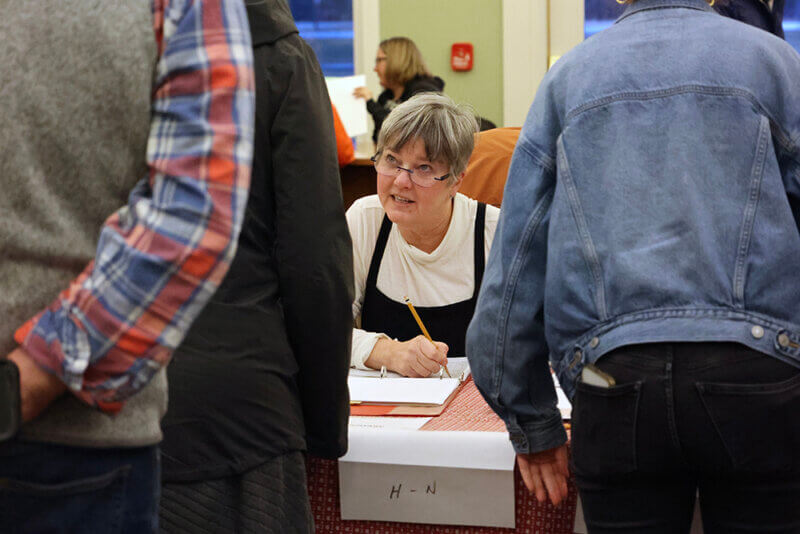
Dee Hodson gives instructions to a voter at Charlotte’s Town Hall on Town Meeting Day.
The town manager proposal, which would bring more decision-making power to the role overseeing the town’s operation, compared with the administrator position, has garnered significant attention among Charlotte residents and elected officials for the past several months. Proponents who petitioned to bring the charter change to the ballot argued that elected selectboard members are volunteers who aren’t experts in running a town, and a manager can handle routine issues more efficiently.
“We’re in favor,” Peter Carrei said of the proposal, as he walked out of town hall with his wife, Dale. “I just think we could use someone that has a bit more professional experience in that position, and that could maybe take a little bit more off the plate of the town selectboard.”
Others were unconvinced by that argument. “I don’t think we need it yet as a town, so I voted against it,” said Evan Osler, who has lived in Charlotte for seven years, as he left the polls.
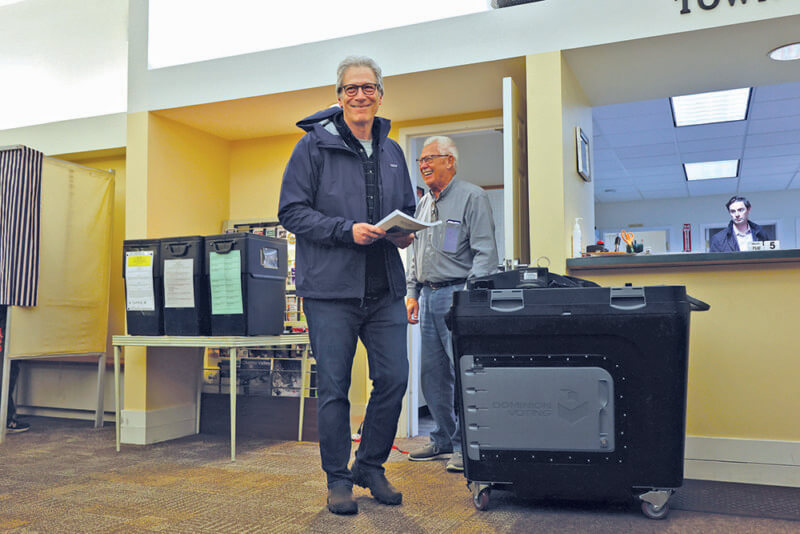
Trustee of Public Funds Moe Harvey and Charlotte resident Larry Sommers share a laugh after Larry casts his vote.
Dan MacLean, who owns Sweet Roots Farm on Route 7 and has two small children, said he would opt “to keep what we have in place currently.”
Evan Langfeldt, 45, has lived in Charlotte for more than 15 years and said the selectboard should remain more involved in town affairs. “I voted no,” he said, “I think it just needs more discussion.”
Voters also considered a Champlain Valley School District budget of $105.8 million, up from $96 million last year, which would contribute to an estimated 20-percent increase in the property tax rate for the 2024-25 fiscal year. In its budget report, the school board blamed many cost factors outside of the district’s control.
Some Charlotte voters balked at the steep increase.
“I think that the school budget is a real challenge right now, and I think that it’s not for a lack of effort by our school board to try and fill the gaps,” said Langfeldt, whose daughter previously attended Charlotte Central School. “I think that the legislature has to take a different approach because a 20-percent increase is untenable.”
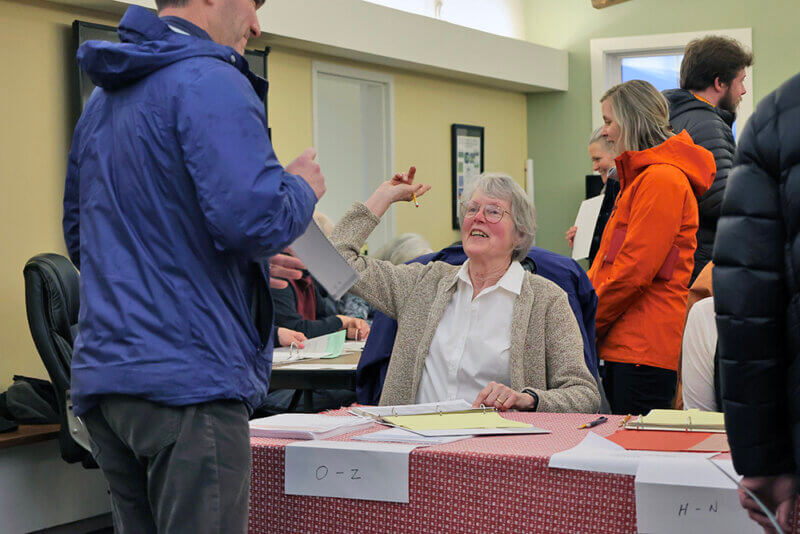
Peter and Dale Carrei said high property taxes contributed to their concerns about “being able to stay in town.”
Heather Morse, who has lived in Charlotte for eight years and identified herself as a mother of two, came to vote with her baby in a carrier. “We live in Charlotte because of how great the school is here,” Morse said as she left the polls. “I know that there’s a lot of schools really struggling to get the extra help for kids. And my son has dyslexia, and so it’s really important to me that those (programs) stay in place.”
The presidential primaries were a key driver to the polls for Charlotte voters, who expressed their enthusiasm for exercising their civic duty during volatile political times.
“Nothing really drives me more crazy than people who sit around and complain but were given the opportunity to say something or do something about it, and then don’t,” Morse said.
Dan MacLean agreed that he had a responsibility to “do my due diligence for the town and cast my vote so my voice is heard.”
Even amid disagreement on town matters, 41-year Charlotte resident Joseph Zilko said that kind of engagement is a quality residents have in common. “I always vote,” he said. “I’m a citizen.”
(Busy Anderson and Macy Isenberg reported this story on assignment from The Charlotte News. The Community News Service is a program in which University of Vermont students work with professional editors to provide content for local news outlets at no cost.)
Related Stories
Popular Stories
If you enjoy The Charlotte News, please consider making a donation. Your gift will help us produce more stories like this. The majority of our budget comes from charitable contributions. Your gift helps sustain The Charlotte News, keeping it a free service for everyone in town. Thank you.
Andrew Zehner, Board Chair



